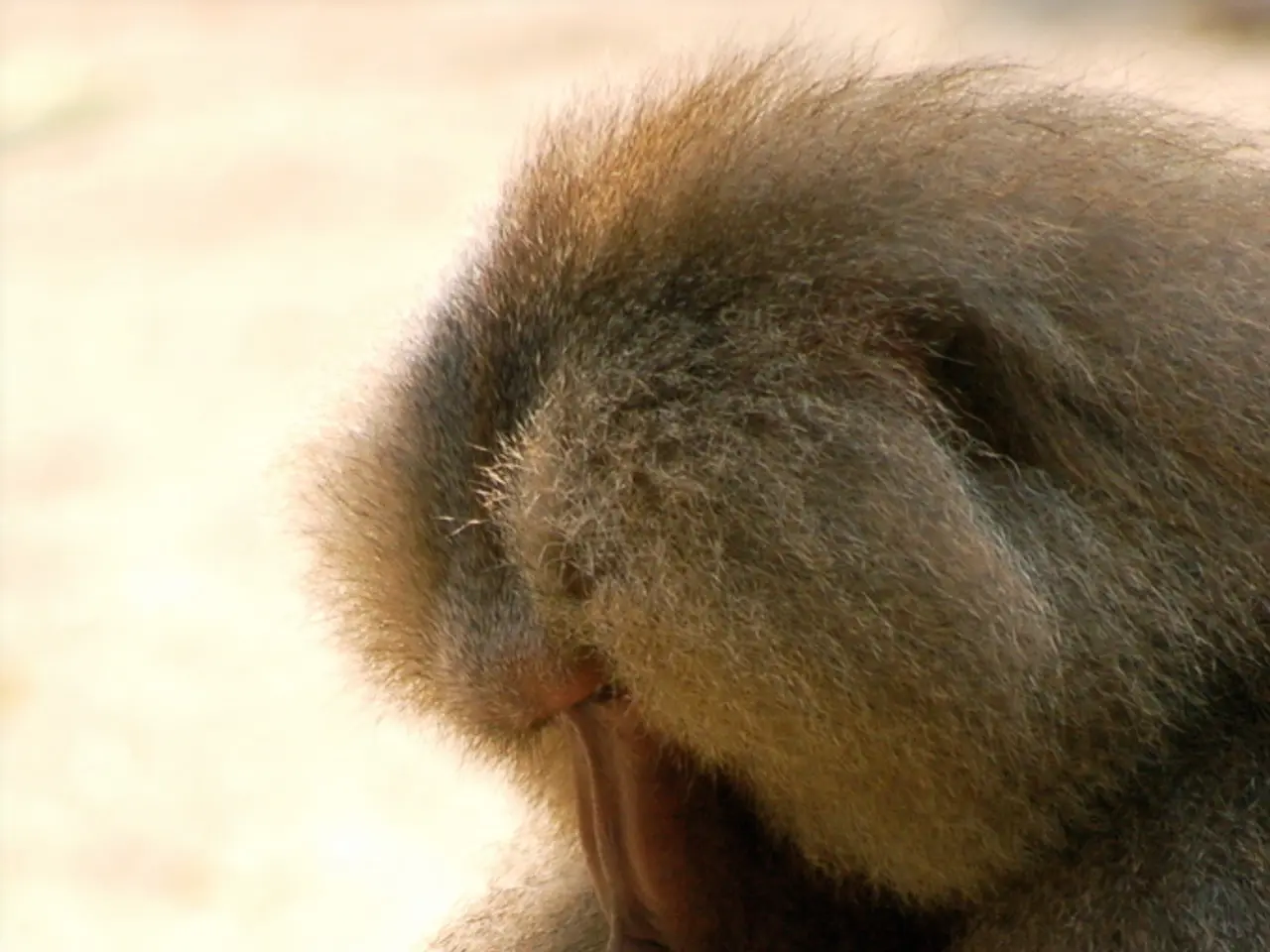Understanding Orangutans' Nap-Taking Habits: A Closer Look
Orangutans retreat to their nests for slumber following their activities.
Orangutans, these distant cousins of ours, are known for their lengthy sleep sessions - up to 13 hours a night. However, like humans, they too need their Beauty rest when day comes knocking, especially if they've had a harrowing night.
According to Alison Ashbury, a biologist from the Max Planck Institute for Behavioral Biology (MPI-AB) in Radolfzell, an orangutan deprived of sleep during the night catches up on it during the day. In other words, they nap like us humans when they don't get enough Z's at night.
"Imagine you're unable to sleep because your friend's TV is too loud or your roommate snores," Ashbury explains, "Well, that's pretty much what it's like for an orangutan." An orangutan might choose to socialize over sleeping or be disturbed by the presence of others - or both.
Interestingly, the team found that an orangutan's daytime naps tend to be longer on days when they've slept less at night. On about 41% of the observed days, these magnificent creatures took at least one nap, with an average duration of about an hour. Moreover, when their naps were shorter, they tended to nap more frequently.
"You might compare a short nap's refreshing effect on humans to that of an orangutan," says Meg Crofoot, co-author and director at MPI-AB. This nap time seems crucial to help orangutans recover from a restless night, both physically and cognitively.
In their study published in "Current Biology," the team observed the behavior of adult orangutans at the Suaq Balimbing Monitoring Station on the Indonesian island of Sumatra. They found that a higher number of nearby orangutan nests resulted in shorter sleep times for an individual orangutan. If multiple orangutans were nearby, an individual's sleep duration was reduced by about 14 minutes, with early wake-up times being primarily responsible for this reduction.
To accommodate these sleep losses, orangutans seem to take power naps throughout the day, aiming to recover from the missed sleep and maintain their cognitive and physical performance. This dynamic balance highlights the importance of social factors in shaping orangutan sleep behavior, as they prioritize social interactions, even at the cost of reduced rest.
So, next time you find yourself nodding off during a boring meeting, remember: even orangutans share our 21st-century sleep struggles!
- Social Interactions
- Behavioral Research
- Energy Conservation
In the context of orangutans' sleep habits and social interactions, it's intriguing to contemplate a community policy that encourages quiet environments for better sleep, thereby promoting health-and-wellness. Vocational training could be provided to orangutan caretakers, emphasizing the importance of energy conservation and sleep hygiene, which might lead to more effective and restful nap-taking for these great apes, much like vocational training in the human workforce focuses on productivity and well-being.
The study of orangutan sleep behavior, as was conducted by Alison Ashbury and her team, also provides valuable insights into the science of sleep and its impact on health and wellness, not just for orangutans but for us humans as well. The results could potentially lead to further research in sleep therapy, vocational training for sleep specialists, and the development of health-and-wellness programs centered on sleep hygiene and energy conservation.








